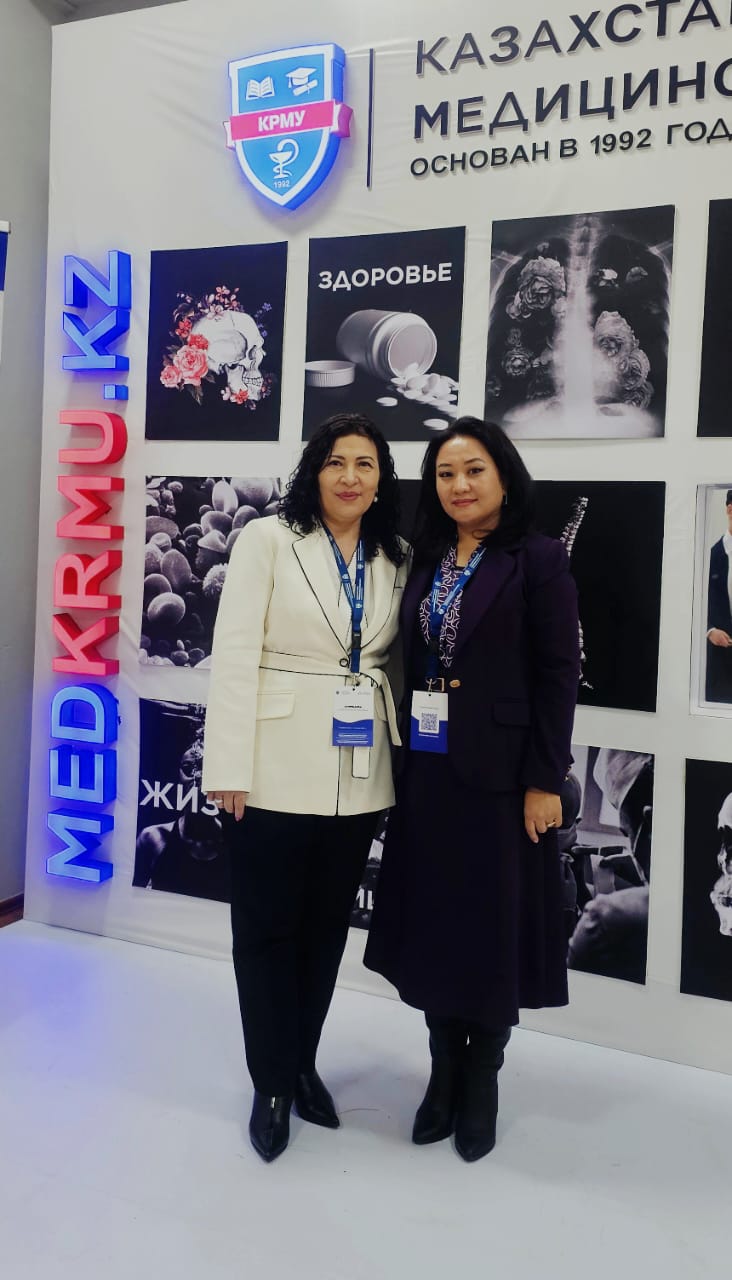At the International Scientific-Practical Conference “Medical-Social Aspects in the Prevention of Childhood Morbidity and Disability,” held on 27 February 2025 at the Kazakhstan-Russian Medical University, cutting-edge research in pediatric rehabilitation was presented. The presentation, delivered by Candidate of Medical Sciences and Associate Professor A. R. Alimbaeva, Head of the Department of Pediatrics and Physical Rehabilitation named after D. M. Tusupova at NAO MUS, together with co-presenter E. E. Dairbekov, an assistant at the department, focused on assessing the need for and selection of technical rehabilitation means (TRM) for children with postural control impairments.
The relevance of the study is underpinned by the fact that impairments in postural control significantly affect the quality of life of children and their families. Modern diagnostics of these impairments is based not only on the use of modified scales (UNODN, UNFR) but also on a comprehensive analysis of clinical data, medical history, complaints, as well as the wishes of the child and his or her family. According to the presenters, this comprehensive approach enables an objective assessment of the degree of motor impairments and the development of algorithms for selecting individualized TRM aimed at improving the functional status of young patients.
Special attention was given in the presentation to the practical experience of implementing a pilot project for TRM selection, developed in accordance with the order of the Ministry of Labor and Social Protection of Kazakhstan. Supported by the Public Foundation “Qazaqstan halqyna,” the project covers several cities, including Semey, Shymkent, Kyzylorda, and Pavlodar. In particular, in the city of Semey, since 19 December 2023, an office for TRM selection has been operating at the KGU “Center for Abilitation and Rehabilitation of Persons with Disabilities of the Abay Region,” where an innovative method is applied that involves a thorough examination of patients followed by remote monitoring of the use of rehabilitation devices.
The presentation also emphasized that individually selected TRM—such as adaptive seats, dynamic support systems, and specialized trainers—contribute to enhancing children’s mobility, which in turn increases their independence and improves social interactions.
Thus, the presentation by Candidate of Medical Sciences A. R. Alimbaeva and E. E. Dairbekov has made a significant contribution to the development of pediatric rehabilitation. The research presented demonstrates that a comprehensive and individualized approach to the selection of technical rehabilitation means is an effective tool for correcting postural control impairments, thereby improving overall health, promoting social adaptation, and enhancing the quality of life of children.


